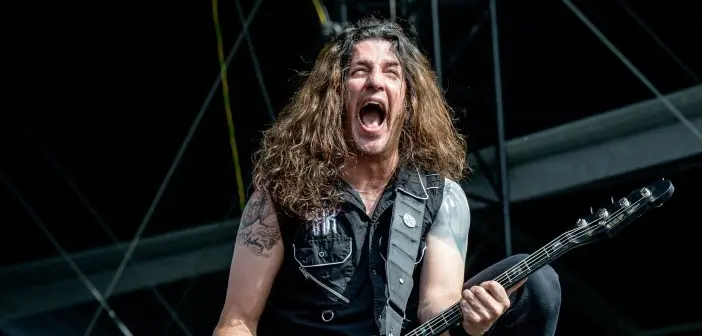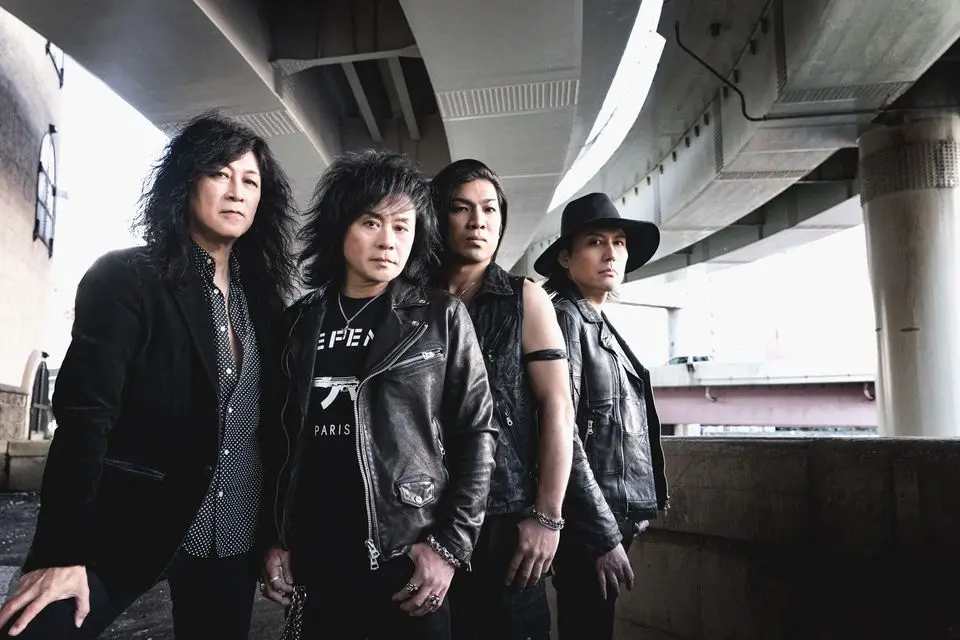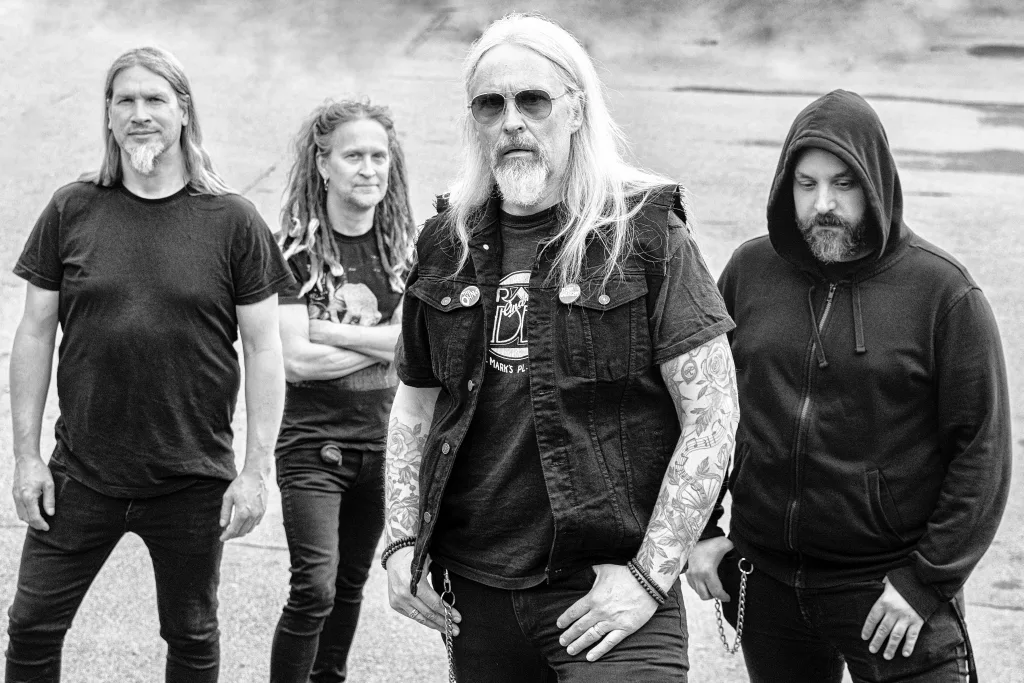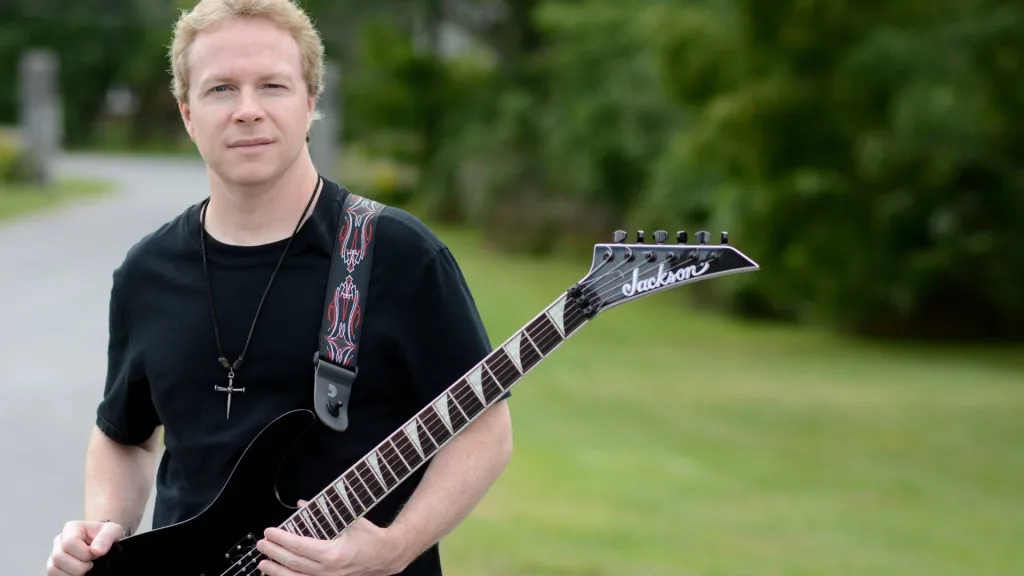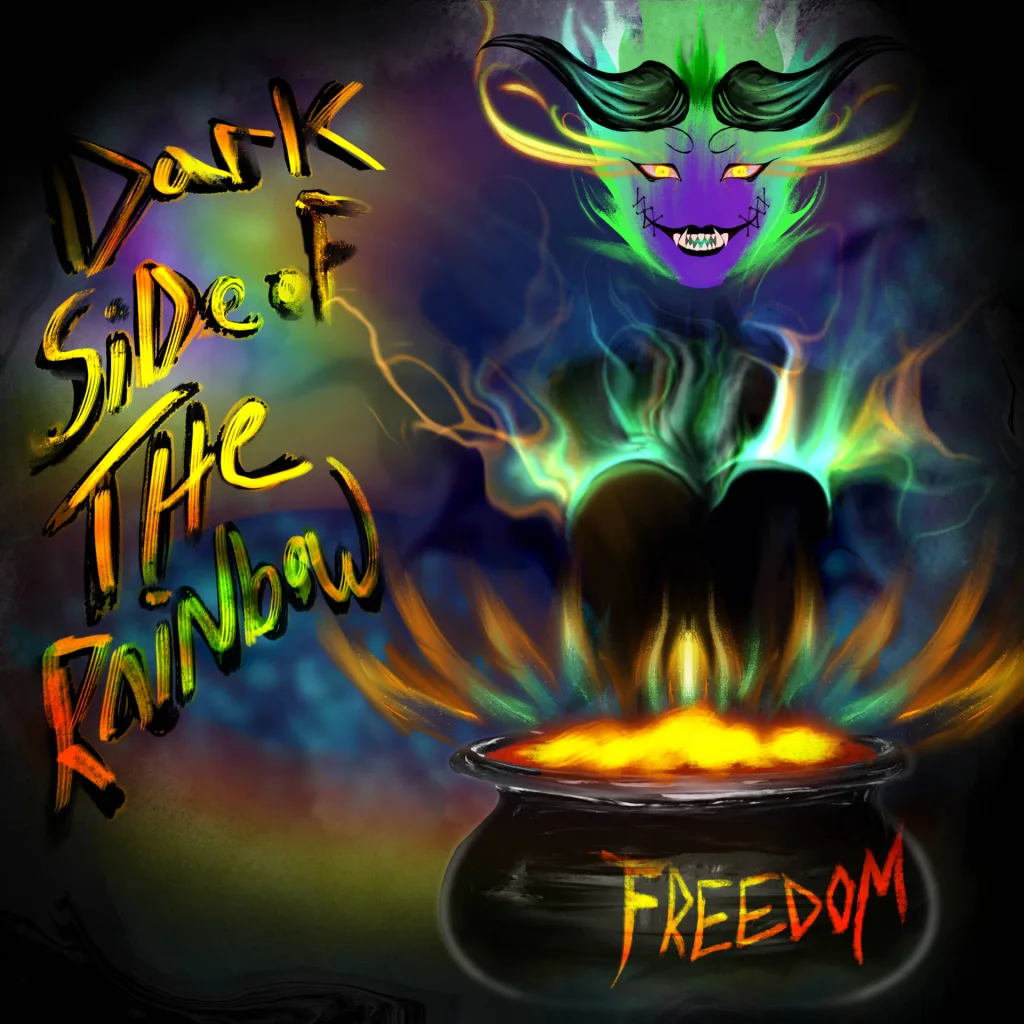Kings of Dust and former Badlands bassist Greg Chaisson’s interview
Written by Kevin Tanza on July 30, 2021
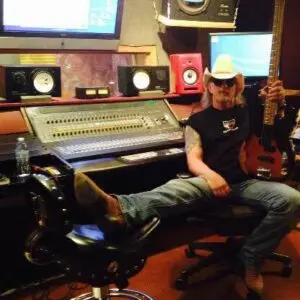
Author’s note: This interview took place a couple of months ago, but we were going through some technical issues. We apologize to Greg and the people of Kings of Dust for this situation.
c
Welcome to MusikHolics, Greg. It’s great to have you here. How are things going in these crazy times we’re living?
Hey, Kevin, Thanks for having me here. Things are great right now, everyone is healthy. I run a guitar store in Phoenix, Bizarre Guitar and Drum, and we have been super busy these last 12 months. Besides all that, I have Kings of Dust going full steam ahead and I coach baseball at one of the high schools here. So as I said, things are great.
How much of a toll this situation has taken on your work with Kings of Dust?
Our record had the misfortune of coming out on March 13, 2020, the same day that they announced the pandemic. So like every other band, all of our live plans were put on hold or cancelled altogether. Rather than sit around and keep rehearsing songs from the record not knowing when we would be able to play live, we just decided to start writing songs for the 2nd record, which is where we’re at right now. We have about 12 songs written and things are sounding very promising.
For people that are not familiar, how would you describe Kings of Dust to them?
70’s style hard rock with a little bit of a bluesy twist, very riffy, with lots of moving parts. We don’t write 3 minute songs. Our songs are all at least 4 – 5 minutes long. It gives us a chance to showcase our influences and musicianship.
One thing that struck me when listening to the album is how good the production is. It’s not overly digital like most modern albums and has that old school feel. How did you accomplish that in the studio?
Thanks! That’s mostly due to vocalist Michael Beck owning the studio and being very familiar with how it works. He produces a lot of other bands. As a matter of fact, that’s his main job. I was looking for a very 70’s analog sort of sound. Between the two of us we worked really hard to achieve that. Because he owns the studio we had unlimited time to really experiment and get the exact sounds that we wanted. We actually mixed the record 3 separate times to make sure we got what we were looking for. It wasn’t, easy that’s for sure, because most bands don’t go for that type of sound these days, but the sound we got is exactly what we were looking for.
You have mentioned in other interviews that you guys wear your 70s Hard Rock influences on your sleeve. How do you balance showing the band’s influences but also showcasing your own sound and style?
I don’t think we try to hide who our influences are but we don’t exactly copy them either. Usually we are just looking for a particular vibe, whether it’s a Zeppelin sort of thing or a Deep Purple sort of thing or any number of other bands from that era.
I started playing in the early 70’s and those bands were all major influences of mine. I think that shows in the fact that we don’t try to write 3 minute hit songs. We do what the great bands from that era did: write whatever is in our heart. That’s one thing that we did in Badlands and I always enjoyed that, the freedom to create what you hear in your head.
The funny thing about the record is a lot of people hear different things in different songs: When they mention what they hear from an influence perspective sometimes they couldn’t be any further from what we were going for, but that’s the cool thing about this kind of music, what someone hears is what someone hears.
You obviously have been in the music business for decades now. How you do think you have evolved as a bass player throughout the years?
All of my influences are the great players from the late 60’s on through the 70’s. They were not your typical one note, ride along on A type of player. They were always looking for ways to add to the music, to help take it to new places and in different directions. Since they were the guys I was brought up on I just tried to do my best to follow in their footsteps.
I’m really kind of a mixed bag of about 20 different bass players. I don’t sound exactly like any of them but I sound a little bit like all of them. I actually still enjoy playing the bass, I always have one on my couch so I’m always coming up with new ideas. I’m lucky I can play what I hear in my head. I know that is difficult for a lot of musicians. When I hear the chords I automatically hear different melodic places that I can go with my playing.
In the 80’s most bands didn’t want a bass player like that but I was lucky when I joined Badlands because that’s exactly what Jake (E. Lee) was looking for. Badlands played in such varied musical styles and influences it really allowed me the opportunity to stretch out.
I know you started this band by working with vocalist Michael Beck in his studio. How was the writing process for these songs?
On the first record, the original guitarist Mike Patruno and I would get together once a week. If he had a riff we would make it into a song. Conversely, if I had a riff we would then turn that into a song. After he left the band, I became the main musical writer. I would bring in some parts to a song and then we would all get together and work them into a complete song. As we were arranging the song, Michael would start writing melody lines and lyrics. Once everything was put together, I would go over it about a million times until I got it exactly the way that I wanted it.
Then we would get together and work out the arrangement and presto, we would magically have a song! Sounds pretty simple, doesn’t it? Actually the whole writing process was pretty painless. I’m lucky I have great musicians in the band who are also excellent song writers. Michael was very easy to work with. If I wanted him to change something or I had a suggestion, he never had an issue with it. We would just try it and if it worked we used it, if not then we went on to something else. Like I said, painless.
Something that I found interesting when doing research for this interview was that you guys did a Kickstarter crowdfunding campaign to finance the mixing and production costs of the album. How did you come up with this idea and were you expecting such a support?
Michael Beck and drummer Jimi Taft actually came up with the idea. I wasn’t so sure about it but they convinced me and they were right. To be perfectly honest, I was very surprised by the support that we got during the Kickstarter program. Because we paid for everything ourselves the support we got was very important in allowing us to put together an 8 page booklet along with all the other extras such as photo shoots, mastering and manufacturing costs. We probably couldn’t have done as well without it. Also it was nice to know so many people were willing to get on board without ever hearing any of the music.
You have been in many bands throughout your career. Do you feel that maybe you have a bit more control on Kings of Dust?
Yes and no. I mean, we call all the shots. We didn’t have a manager for the first record, we kind of did everything on our own. Fortunately, because I had a little bit of a resume, we were offered a lot of interviews. And because of my resume, a lot of websites and what have you picked up on the record. Thankfully almost all of the reviews were super positive.
I’ll tell you what, though: I’m willing to have a little less control if it means we can get a little more traction on the 2nd record. It would be nice to focus on the music instead of worrying about the business.
This debut album has a strong bass presence by you. What do you think makes a bassist have a good performance on either a song or an album?
Well, I can only speak for myself, every bassist has their own unique style and I think I certainly have my own unique style as well. But that’s the way it always is, isn’t it? Every musician is best at being themselves.
Whenever I make a record, I’m lucky enough that I’m usually given complete control of how I approach the bass parts so I just play what I hear in my head. I would say it’s actually very easy but that’s only because I’ve been playing that way for almost 50 years.
As far as the bass being so present on the first record, I actually thought that it might be a little too loud but Michael Beck always said if I’m going to have to put up with you, I might as well hear your bass! (Laughter)
Musically speaking, what can you tell us about the next Kings of Dust album? Any new directions you might be looking for?
Well this is actually where the rubber hits the road. We just recently parted company with lead vocalist Michael Beck. Michael was outstanding on the first record as far as his performance as a singer, writer, and engineer. There actually would be no first Kings of Dust record without Michael Beck. But he was looking for other things to do and we were very adamant about staying the course with Kings of Dust so we just agreed to go our separate ways. I have no doubt that Michael will go on to many great musical adventures.
Fortunately we have a new singer, Mr. Ken Ronk. Ken is an excellent bluesey, soulful, emotional style of vocalist. His singing will fit the 2nd record perfectly. He is also an excellent front man and entertainer and we are very fortunate to have him in Kings of Dust with us. He is like a brother to all of us.
This record will also be different because while on the first record there were a number of different people playing drums or guitar at one time or another and even some other people contributing to the writing process, on this record the four of us are doing all of the writing. If it’s possible we’re even going further into our 70’s roots. The music on the 2nd record will just be a progression and an extension of the 1st record.
Ryan McKay along with being a brilliant guitarist is also an excellent writer. The way we have been doing it is he brings in a song or part of a song and then we work on it, each of us adding our own parts. Alternately, I will bring in a song and we will do the exact same thing. Jimi Taft is one of the best drummers I’ve ever played with and his drum parts are integral to what is going on in Kings of Dust.
We have only had a half a dozen rehearsals or so with Ken but already his vocals and melody lines are taking these songs in very inspiring directions. We couldn’t be happier, and I couldn’t be happier. I have great musicians and great friends right there with me.
Thank you for taking the time to do this, Greg. It was a pleasure. Any last words for our readers? Where can we follow you on social media and buy the Kings of Dust album?
You can get the record on KOD.band or on our Facebook page which is Kings of Dust. You can follow us on Instagram @kingsofdust. You can also get the record on Apple Music.
Keep your eyes and ears peeled for the 2nd Kings of Dust record. I honestly think that if you liked the first one, you will definitely dig the 2nd one. I want to say thank you to you and to all of our supporters and fans. You all mean everything to us. You are the reason we do this. Besides that, there’s no money in it so we just do it for the love!
We hope to see you out on the road, come and check us out. Come on up and say howdy.
Thanks, Kevin!
Author
Kevin Tanza
You may also like
Continue reading
